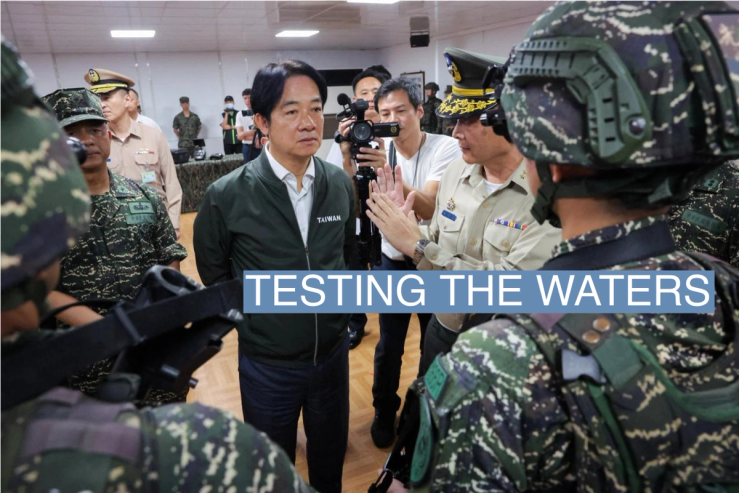The News
Taiwan was surrounded by Chinese fighter jets and naval ships on Thursday, conducting drills as “punishment,” according to the military, following newly-appointed Taiwanese president Lai Ching-te’s inauguration speech on Monday.
In the speech, Lai told China to stop its intimidation tactics, and China responded by kickstarting two days of military drills. Taiwan has scrambled its own air force and put its naval and land units on alert.
This is Lai’s first foreign policy test and sets the tone for how Taiwan and China might navigate the cross-strait tensions over the next four years of Lai’s term.
SIGNALS
China’s drill is not too big, not too small, but just right to keep neighbors at bay
The drills are significant, but they aren’t as extensive as previous ones and don’t extend along the entire eastern half of Taiwan as some have before, Taiwan-based military analyst Lin Yingyou said. What’s clear is that Beijing is willing to perform the drills closer to the island, but the reduced size might reflect “lessons learned” after former United States House Speaker Nancy Pelosi’s visit to Taiwan in 2022. At that time, Beijing fired a missile that landed in Japanese waters, sparking a diplomatic crisis with Tokyo. When “Taiwan has trouble, Japan has trouble,” Lin said, and provoking US military allies could backfire.
Lai must balance nationalist ambitions with economic considerations
Lai’s pro-independence rhetoric has already provoked Beijing and if he continues, his domestic economic agenda “may be more difficult or costly to achieve,” as investors look to less risky bets, Rory Daniels of the Asia Society Policy Institute think tank said. Economic woes trumped security from China for voters in the 2023 presidential election, according to Taiwan’s The News Lens. Lai promised to reboot the economy with foreign investment, but global firms are already debating the hidden costs of getting involved with Taiwan. If China invaded Taiwan, it could cost the global economy $10 trillion, or about 10% of global GDP, according to Bloomberg.
China seeks to boost morale through its military
Chinese state media was quick to boast about the country’s military strength on Thursday, with reporters on social media platforms like Weibo sharing movie poster-like images of the Chinese navy with the hashtags “Sword Pointed at Taiwanese Independence,” and “Cross-Strait lethality.” The messaging follows a similar pattern to previous drills: China’s military exercises are “often as much about playing to a domestic audience as signaling intentions internationally,” according to CNN. In general, Chinese people are worried about the consequences of potentially invading Taiwan, and China has used the media in the past to boost national morale, as Semafor previously reported.



